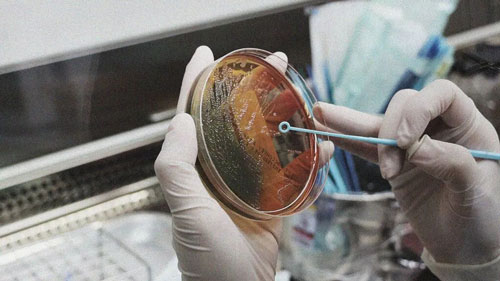More than 90% of the 34 million people who have diabetes in the United States have type 2 diabetes. Individuals with type 2 diabetes do not produce enough insulin, or their cells do not respond to it appropriately. As a result, cells do not absorb sugar efficiently, and blood sugar level rises. Over time, this can cause damage to internal organs.
The Western diet, which is high in saturated fats and refined sugars, increases the risk of developing type 2 diabetes. Recently, scientists set out to identify which specific gut bacteria species might play a role in this association between diet and diabetes. The gut microbiome includes hundreds of species of bacteria. Scientists have shown that an imbalance in the microbiome, or dysbiosis, has associations with adverse health outcomes. One 2019 study suggested that a disturbance in the gut microbiome might contribute to the development of type 2 diabetes. A recent paper, which appears in Nature Communications, suggests that a small number of specific bacteria might be pivotal. Scientists from Oregon State University in Corvallis, OR, the University of Vienna in Austria, the National Cancer Institute, and the National Institutes of Health in Bethesda, MD, carried out the research.
This paper is important as it shows that specific bacteria that are not “keystone” influencers of the whole microbiome may still have an important individual impact on health. “The analysis pointed to specific microbes that potentially would affect the way a person metabolizes glucose and lipids. Even more importantly, it allowed us to make inferences about whether those effects are harmful or beneficial to the host. And we found links between those microbes and obesity.”
The researchers combined experiments on mice with the analysis of large quantities of data from previous research in mice and humans. The scientists gave mice either a regular diet or food equivalent to a Western diet. As the researchers expected, mice fed a Western diet developed glucose intolerance and insulin resistance, which are contributing factors to type 2 diabetes.
They also noted a significant change in the composition of the gut microbiome. Researchers then applied a “Transkingdom Network” analysis, which is a data-driven approach that models interactions between the microbes and the body to identify which gut bacteria contributed most to the changes in metabolism. They managed to narrow down the list to four bacteria that appeared to play a key role in reducing or intensifying the harmful effects of a Western diet: Lactobacillus johnsonii, Lactobacillus gasseri, Romboutsia ilealis, and Ruminococcus gnavus.









